Success Stories
Egypt
Financial Deepening in Egypt – Financial Development and Financial Inclusion (FDFI)
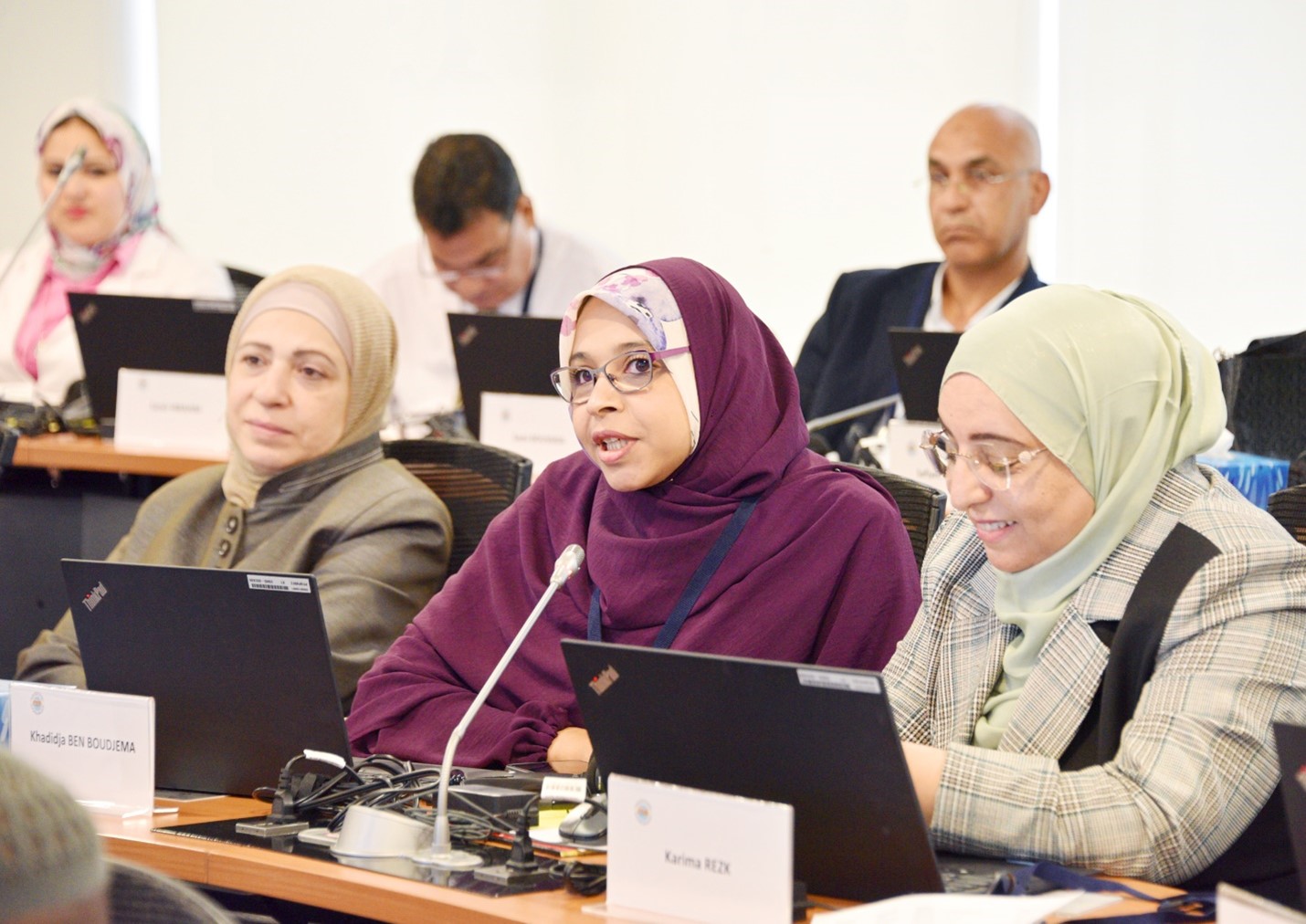
The Egyptian authorities have implemented recent initiatives to promote financial depth and inclusion while mitigating credit risks. These efforts focus on supporting greater SME access to credit while closely monitoring vulnerabilities and the risk-bearing capacity of banks. The Central Bank of Egypt (CBE) has taken actions to strengthen the financial sector, including regular monitoring of banks’ balance sheets and committing to reduce its exposure to public banks. These actions reflect a proactive approach towards risk management and the maintenance of financial stability.
The CEF offers a Financial Development and Financial Inclusion (FDFI) course tailored for mid-level to senior officials from central banks and government agencies. This course explores the macroeconomic relevance of financial development and inclusion, providing participants with the necessary knowledge and strategies to foster financial depth while effectively managing its potentially destabilizing impacts. The course is particularly relevant to the ongoing reforms implemented by the Egyptian authorities.
An official from the Ministry of Finance in Egypt, who participated in the FDFI course, expressed the following: "The knowledge gained through this course has had a profound impact on my professional growth and has the potential to enhance policymaking in my country. The course has not only increased my awareness of the critical role of financial inclusion but also equipped me with various strategies to promote financial depth.”
Jordan
Tax Administration Reform in Jordan – Tax Policy and Administration (TPAT)

In recent years, Jordan has undertaken remarkable fiscal reforms, focusing on closing tax loopholes and combating tax evasion to optimize its tax system. Through key legislative reforms aimed at broadening the tax base, coupled with administrative efforts led by the Income and Sales Tax Department (ISTD), the country has witnessed a notable increase in domestic revenues. This fiscal transformation has enabled the central government to reduce its primary deficit and allocate more resources to social and capital spending, crucial for fostering an inclusive recovery.
The Tax Policy and Administration: Theory and Practice (TPAT) course, specifically tailored for senior officials from finance ministries and tax administrations, equips participants with the knowledge required to design, administer, and monitor a modern tax system. The comprehensive curriculum covers policy design principles, major tax types, tax administration management, and strategies for addressing tax compliance challenges. The course enhances participants’ understanding of the interconnectedness between tax policy and administration.
During the TPAT course, an official from the Central Bank of Jordan expressed the following: "the course is highly relevant to the ongoing tax policy reforms in Jordan, particularly in areas such as (1) promoting increased tax compliance and voluntary response through awareness, transparency, and improving the quality of tax services, (2) strengthening the capabilities and expertise of department employees, and (3) streamlining procedures and enhancing tax services." This testimonial emphasizes the transformative power of effective training and highlights the direct applicability of the TPAT course to the significant policy reforms taking place within Jordan's fiscal landscape.
Greater Transparency in Jordan – Fiscal Transparency (FT)
Jordan has taken important steps to enhance its fiscal transparency over the past decade. It has recently amended its Transparency and Access to Information (ATI) Law and has also established transparency as a central principle and objective of public sector modernization. Increased publication and audit of COVID-19 spending reports have improved transparency in public spending. Jordan is also expanding its National E-Procurement System and strengthening its connection with the Government Financial Management Information System.
The fiscal transparency course, delivered jointly by the IMF Middle-East Center for Economics and Finance (CEF) and the Middle East Technical Assistance Center (METAC) in 2023, focused on practical tools to enhance fiscal transparency, guided by the IMF’s Fiscal Transparency Code. The course provided an in-depth discussion of the Open Budget Index methodology and highlighted practical examples of countries that have made considerable progress on the fiscal transparency agenda. It also fostered peer learning by encouraging the exchange of country experiences and best practices.
An official from Jordan shared their experience, stating: “This course was very helpful in showing the different criteria for fiscal transparency... We rank first in the MENA region for fiscal transparency, but continued efforts are necessary. This course has provided us with valuable insights to implement further reforms.”
Fiscal Consolidation in Jordan – Fiscal Sustainability (FS)
Despite successive external shocks in recent years, including the COVID pandemic, Jordan made considerable progress in implementing fiscal consolidation to address fiscal pressures and support fiscal sustainability. It achieved strong revenue mobilization, surpassing pre-COVID revenue levels, by broadening the tax base and strengthening the efficiency of the tax administration. Additionally, current spending was contained by removing fuel subsidies and rationalizing food subsidies, while the coverage of the social safety net was expanded.
The fiscal sustainability course, provided by the IMF Middle-East Center for Economics and Finance (CEF), together with the IMF Institute for Capacity Development, equipped participants with tools to analyze public debt sustainability, including projecting debt and identifying main drivers of debt changes under different economic scenarios. The course emphasized the importance of practical applications to support informed decision-making, including to determine fiscal adjustments necessary to achieve a public debt target during a certain period.
An official for the Ministry of Finance of Jordan reflected on their experience, noting: “Using tools introduced in this course, I aligned our analysis with fiscal objectives. This has enhanced our decision-making processes significantly. The course provided a solid framework for applying fiscal sustainability principles and tools.”
Kuwait
Monetary Policy Management in Kuwait – Monetary Policy (MP)
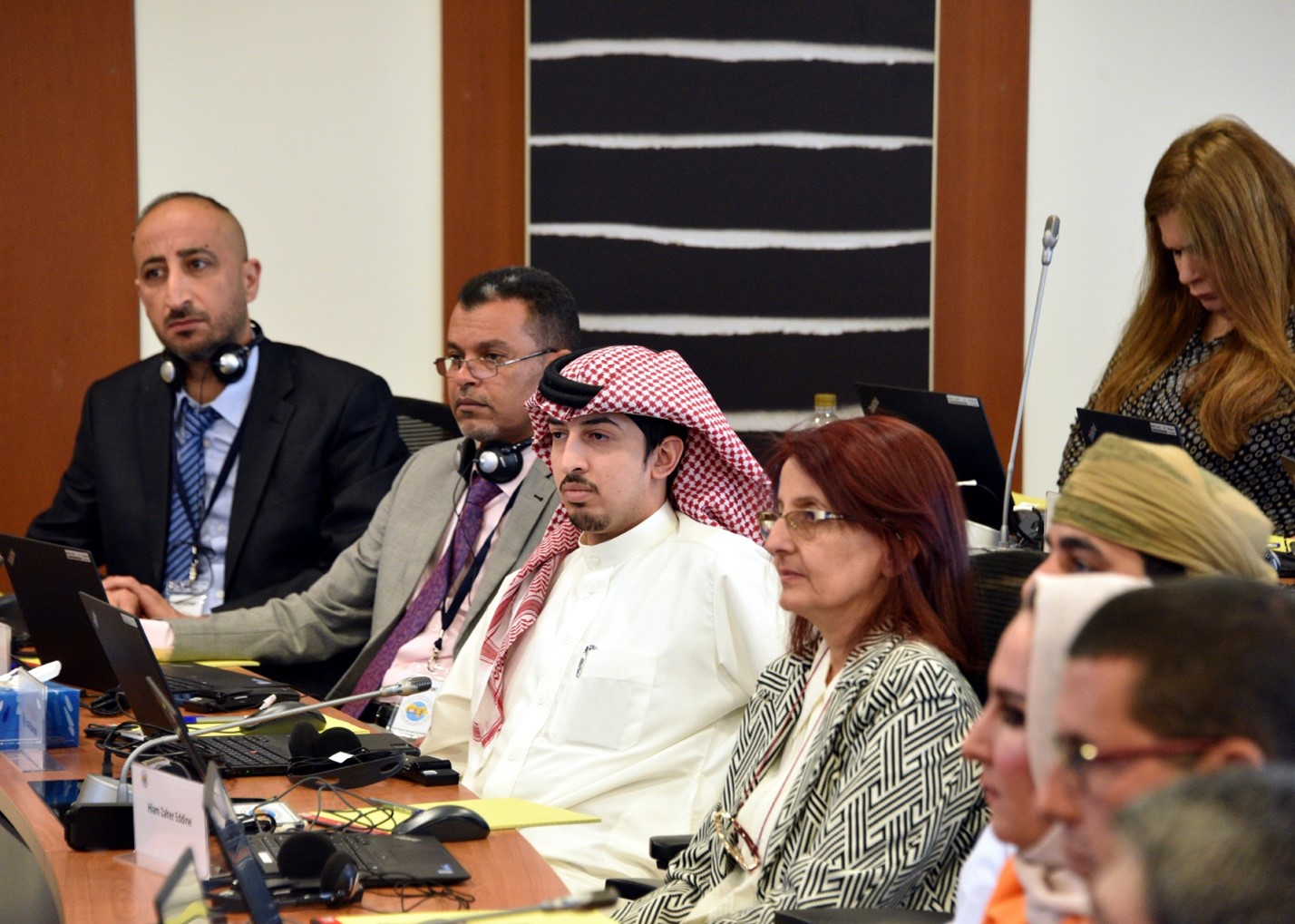
In recent years, Kuwait has made significant progress in strengthening its monetary policy management. The establishment of the Monetary Stability Committee (MSC) in June 2021 marked a key milestone in this reform journey. The MSC has played a pivotal role in revising the monetary policy toolkit, enhancing data quality, and embracing digital transformation to improve analytical and forecasting capabilities. Furthermore, the Central Bank has refined its liquidity management framework by extending the forecasting horizon to anticipate potential system-wide pressures.
The Monetary Policy (MP) course offered by the CEF is highly relevant to such reforms. Specifically tailored for government officials, the course provides a comprehensive overview of monetary policy regimes and their significance in macroeconomic stabilization. Participants are equipped with the necessary tools to analyze and make decisions under various monetary policy regimes. They also gain a deep understanding of the transmission mechanisms through which these decisions impact the economy and learn to evaluate responses to macroeconomic shocks.
Testimonials from participants from Kuwait attest to the positive impact of the MP course. A central bank official said the following: “I have gained a new ability to understand the mechanisms employed in managing monetary policy and the mechanisms used to move it in the directions required to maintain the strength and stability of the economy. I also believe that specialized courses like the MP course actively contribute to the professional development of individuals working in this field through interactive and practical learning experiences”.
Morocco
Tax Reform in Morocco – Tax Policy and Administration (TPAT)
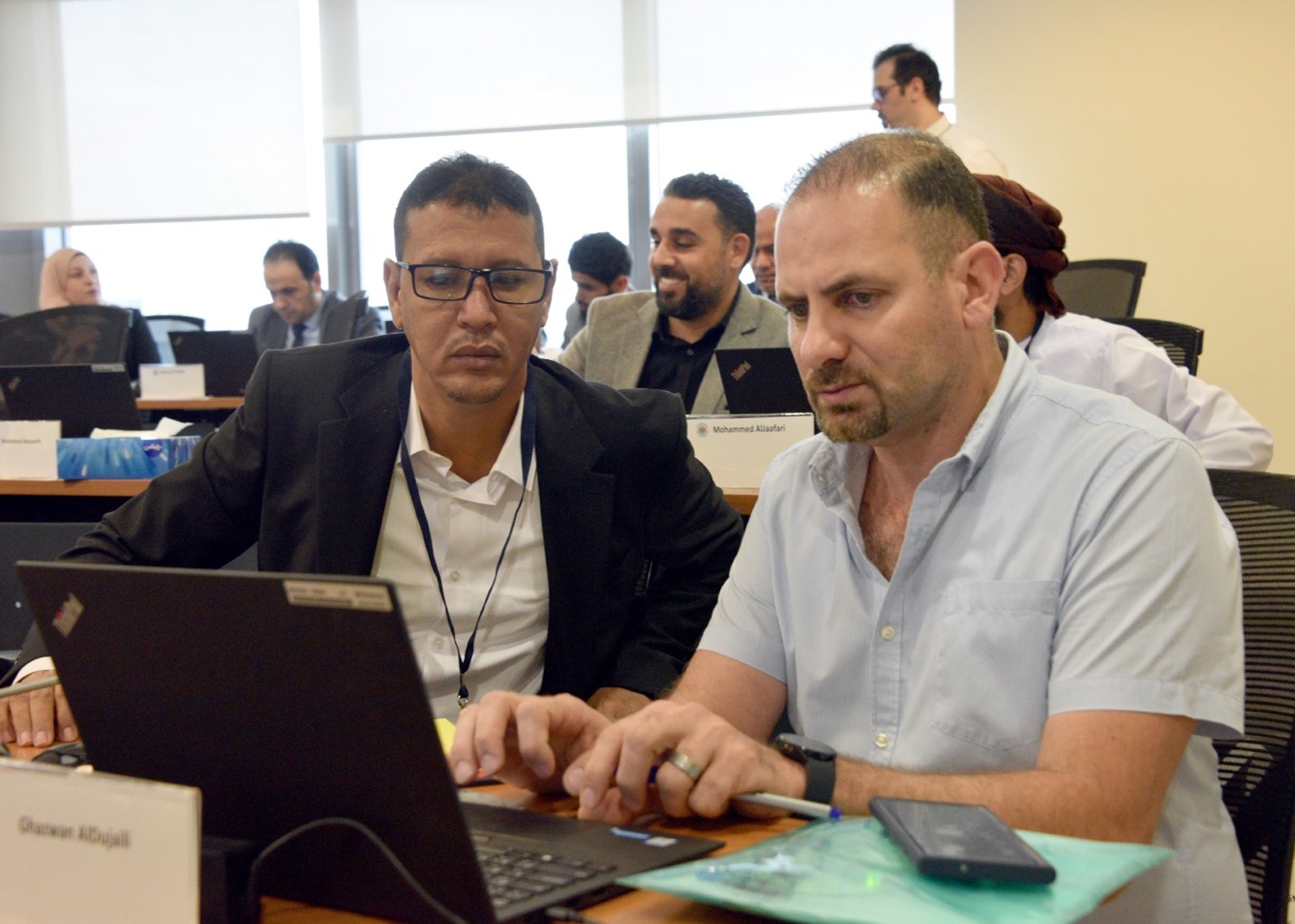
The tax system in Morocco has undergone significant changes to enhance efficiency, progressivity, and broaden the tax base. These measures, in alignment with the Framework Law, include harmonizing corporate tax rates, introducing a solidarity tax on firms, and improving the progressivity of the system by reducing taxes on wages and pensioners and imposing a withholding tax on specific non-wage earnings.
To support officials in tax policy and administration, the CEF offers the Tax Policy and Administration: Theory and Practice (TPAT) course. This course aims to broaden participants' knowledge of modern tax system design, administration, and monitoring. Through lectures and workshops, participants gain insights into tax policy design principles, major taxes, tax administration management, governance issues, and tax compliance challenges.
Among the TPAT participants, an official from the General Tax Administration of Morocco (GTA) stated: “this course gave me practical knowledge and insights into tax management and good practices in tax policy and administration”. Another participant from GTM stressed that “the knowledge gained during the course was valuable in accomplishing day-to-day tasks".
Private Sector Reform in Morocco – Improving Productivity, Diversification, and Competitiveness in MENA (COMP)

Morocco has made significant progress in promoting a dynamic private sector by implementing various reforms. In 2022, the country focused on reforming state-owned enterprises (SOEs), establishing the Mohammed VI Fund for Investment, implementing a new Charter of Investment, and strengthening competition and consumer protection legislation. These efforts aim to stimulate private investment, particularly in key sectors of the economy, and create a more competitive market.
Related to these efforts, Moroccan officials have participated in the Improving Productivity, Diversification, and Competitiveness in MENA (COMP) course. Presented by OECD staff and international experts, the course focused on tools and policies to enhance national and sub-national competitiveness. Through interactive discussions and practical exercises, participants had the opportunity to apply the course methodologies to their own contexts, share experiences, and expand their professional networks.
Participants from Morocco highly appreciated the practical relevance of the COMP course to their ongoing reforms. One official from The National Agency for the Promotion of SMEs commented that "the course presented by IMF-CEF has had a positive impact on my professional work". Another from the Ministry of Economy and Finance added: "the course's focus on case studies from various countries in the MENA region was particularly helpful, allowing me to learn from relevant experiences and adapt them to the local context in Morocco”.
Reforming the electricity sector in Morocco – Transport, Energy, and Sustainability - Protecting the Planet in MENA (TESPP)
Morocco has approved several laws aimed at liberalizing the electricity sector and opening it up to private agents. These laws will help attract private investment, including for the production of renewable energy, support decarbonizing efforts, and closing energy production gap. Morocco has also made progress in completing the legal framework for energy efficiency standards, which will contribute to achieving the country’s energy sustainability objectives by 2030.
The course “Transport, Energy, and Sustainability - Protecting the Planet in MENA (TESPP)”, organized jointly by the IMF Middle-East Center for Economics and Finance (CEF) and the World Bank, discussed solutions for energy efficiency in the energy and transport sectors. Participants explored the impact of transport and energy reforms on the environment. The course provided insights into effective policies and strategies for achieving greener solutions.
A participant from Morocco shared their thoughts: “This training made me aware of the significant environmental impact of transport reforms. I now prioritize environmental factors in my project assessments. This course has shifted my decision-making to include sustainability as a core component. It has empowered me to advocate for greener practices in my work.”
Climate Adaptation and preparedness in Morocco – Macroeconomics of Climate Change MCC
The Ministry of Economy and Finance is leading efforts to coordinate climate programs among various sectoral ministries in Morocco to reduce greenhouse gas emissions and meet the country's climate goals. The include measures to integrate climate considerations into budget frameworks, including the introduction of green taxation, and the phasing out of brown tax expenditures and subsidies. Also, climate considerations are being embedded into public procurement while other reforms aim at increasing the participation of public establishments and enterprises in meeting climate targets.
The macroeconomics of climate change course, organized jointly by the IMF Middle-East Center for Economics and Finance (CEF) and the Institute for Capacity Development, offered an overview of the economic costs and science of climate change. It discussed adaptation and mitigation options, including carbon pricing and greening the economy. Participants analyzed challenges and opportunities in transitioning to sustainable economic models. This course is essential for fostering informed policy discussions on climate adaptation.
A Moroccan civil servant stated: “The courrse generated stimulating discussions and ignited my curiosity about climate issues. Upon returning to Morocco, I presented my findings to my superiors. I advocated for further work in this area, emphasizing the importance of climate adaptation. The course motivated me to continue exploring this critical topic.”
Oman
Fintech in Oman – Selected Issues in the Regulation of Fintech (SIFR)
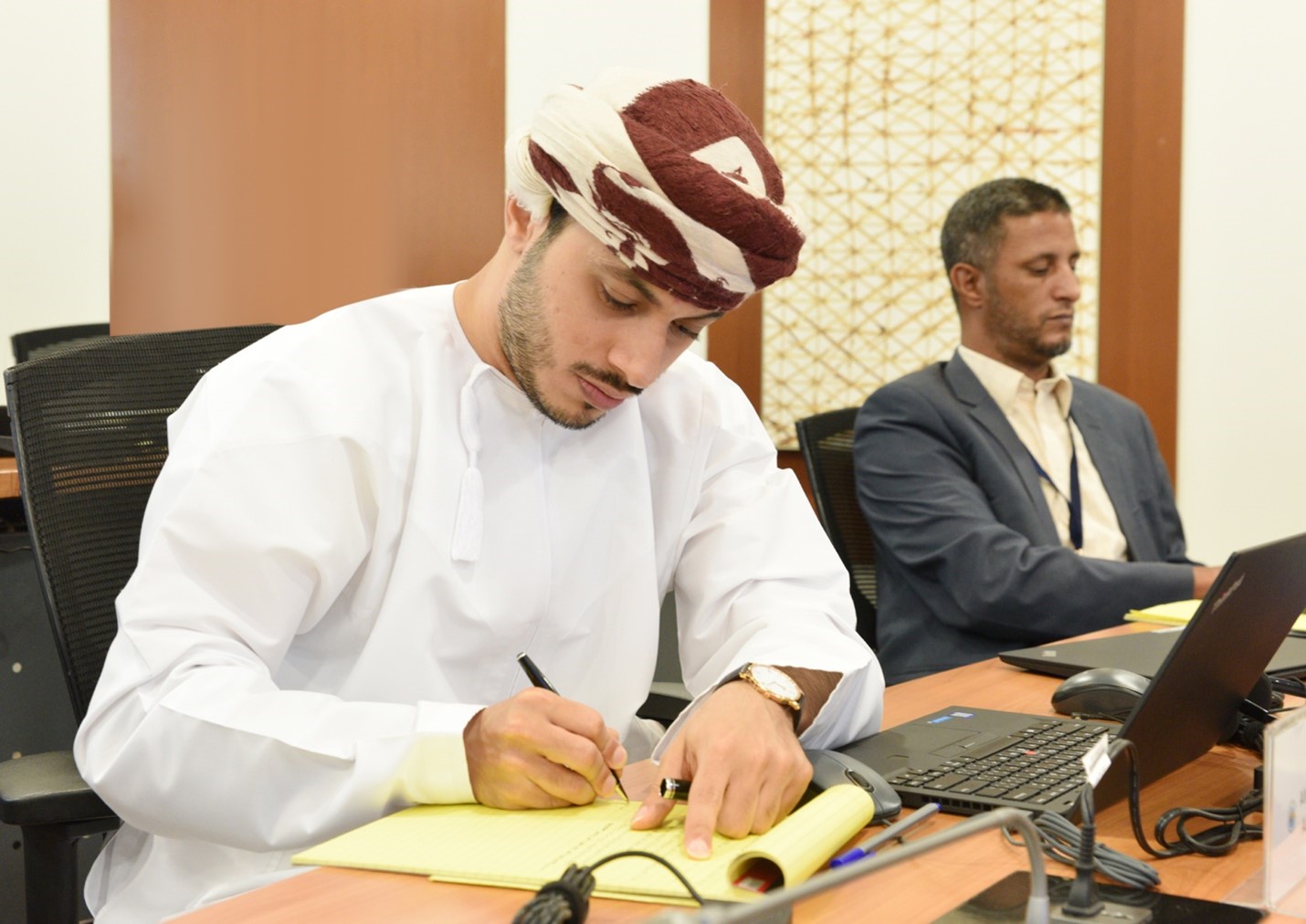
Oman is making steady progress in the digitalization of its financial system, with the Central Bank of Oman (CBO) taking proactive measures. These include the introduction of the Fintech Regulatory Sandbox Framework, testing blockchain technology for trade finance, and developing an open banking strategy. Additionally, the CBO is exploring the potential adoption of a Central Bank Digital Currency (CBDC), while carefully considering associated risks.
Officials from the Central Bank of Oman have enrolled in the Selected Issues in the Regulation of Fintech (SIFR) course presented by the IMF's Monetary and Capital Markets Department. This course provides participants with a comprehensive overview of fintech regulation, addressing challenges related to digital money and cyber risk. The knowledge gained from the course is helpful in informing regulatory decision-making.
Testimonials from participants highlight the positive impact of the SIFR course and one government official from Oman shared that "the course improved my regulatory thinking and allowed me to learn from the experiences of different countries”. Another stated: “now I have a clear vision of the future direction of FinTech and the need for effective security and supervision measures”
Tax Administration Reform in Oman– Tax Policy and Administration: Theory and Practice (TPAT)
Oman is implementing a reform plan aimed at reducing the tax gap over the medium term. The initial focus is on enhancing filing and compliance among registered taxpayers through measures like VAT e-invoicing. Efforts will also include expanding the taxpayer registry and simplifying reporting for SMEs. These actions are essential for modernizing the tax administration system and improving revenue collection.
The Tax Policy and Administration course, offered by the IMF Middle-East Center for Economics and Finance (CEF) in conjunction with the IMF Fiscal Affairs Department, broadens participants’ understanding of tax system challenges. It covers theoretical foundations and practical implementation strategies, tailored to the region's needs. It also features peer learning sessions that promote knowledge sharing and the exchange of country experiences.
An official from Oman’s tax administration noted: “The course has significantly improved our approach to tax policy analysis. I gained valuable insights into systematic methods for evaluating policy options. This has allowed us to align strategies with our country's economic realities. The training equipped us with practical techniques for making informed decisions on ongoing reforms.”
Saudi Arabia
Financial Sector Regulation in Saudi Arabia – Macro-stress Testing (MST)

Saudi Arabia is making significant progress in enhancing its financial sector regulation. The country has taken substantial strides in implementing Basel III post-crisis reforms, with finalized policies issued ahead of the effective implementation date in 2023. The legal and regulatory frameworks for Islamic banks have also been strengthened, demonstrating the Kingdom's commitment to a resilient financial sector.
Our Macro-Stress Testing (MST) course, presented by the IMF’s Monetary and Capital Markets Department (MCM), aligns with these advancements. The course focuses on recent developments in stress testing for banks, insurance companies, and mutual funds, with special emphasis on emerging topics such as feedback loops, climate change risks, and fintech-related risks. Through hands-on modules, participants are guided through the entire stress testing cycle, enabling them to gain practical experience and insights.
Reflecting on the impact of the MST course, one participant from the Gulf Monetary Council shared that the "course is an important resource”. He also added: “we rely on the IMF’s approach in most of our assessments including macro stress tests".
Fintech and Digital Transformation in Saudi Arabia – Selected Issues in Fintech and Digital Money (SIFDM)
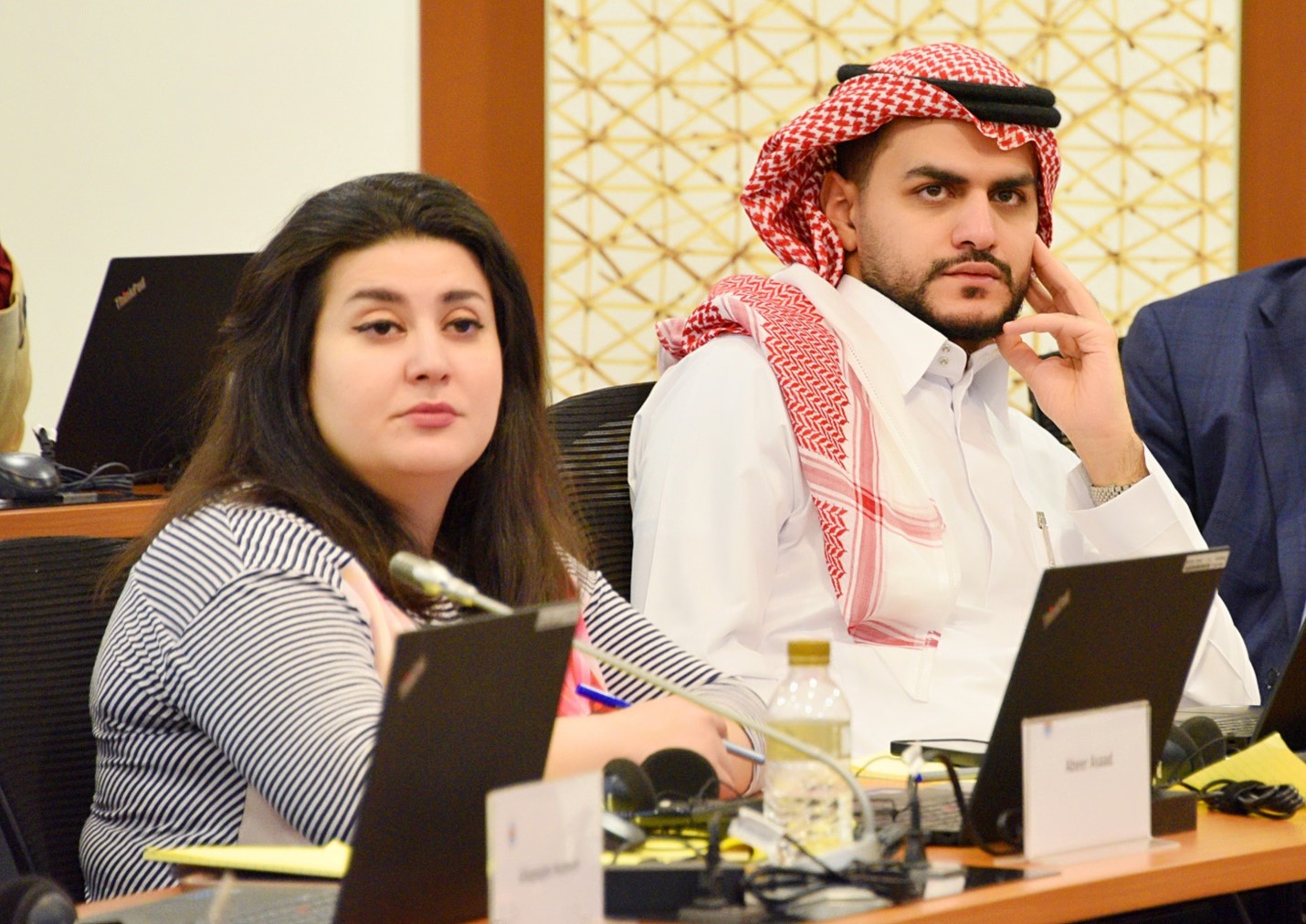
Saudi Arabia is fast-tracking its digital transformation in the financial sector, surpassing the targets set under Vision 2030. The country has witnessed a notable increase in active fintech companies and a significant rise in electronic payments for retail transactions. This digitalization has contributed to enhance financial inclusion, with 83% of adults now owning a bank account. To ensure consumer protection, foster innovation, and mitigate risks associated with Central Bank Digital Currency (CBDC) projects, Saudi Arabia recognizes the importance of developing an adequate regulatory framework.
The Selected Issues on Fintech and Digital Money (SIFDM) course is in the area of Saudi Arabia’s digital progression objectives. By participating in this course, officials gain a comprehensive understanding of global fintech developments including the risks associated with different delivery channels, and the complexities of public and private digital money. The course also addresses the regulatory challenges associated with fintech and digital money, equipping participants with the necessary knowledge to navigate this evolving landscape.
Among the course participants, an official from the Saudi Central Bank stressed that “the course enhanced my knowledge in Fintech regulation" and "the discussion and sharing experiences with participants from other Gulf Cooperation Council (GCC) countries was enlightening".
Labor Market Reform in Saudi Arabia – Boosting Women’s Access to More and Better Jobs in MENA (WEE)

Saudi Arabia is prioritizing labor market reforms, with a specific focus on transforming human capital through Saudization and increasing female labor force participation. Notable initiatives have led to a doubling of female participation to 33.6 percent in Q1 2022, surpassing the 30 percent target set under Vision 2030. These initiatives include transportation subsidies, employer incentive schemes, and childcare support. The commitment to further increase the target demonstrates a strong dedication to promoting gender equality in the workforce.
In the area of these reforms is the World Bank course on Boosting Women’s Access to More and Better Jobs in MENA (WEE). Designed for senior-level government officials and technical representatives, the course focuses on empowering participants to drive meaningful change in promoting women’s economic opportunities in the region. Its main objective is to provide participants with a comprehensive understanding of the key challenges and constraints faced by females when joining and remaining in the labor market. Additionally, the course aims to share knowledge and best practices related to innovative interventions that can enhance women's economic opportunities, with a particular emphasis on childcare provision, entrepreneurship, legislation, and gender diversity in the workplace.

